Premium Only Content
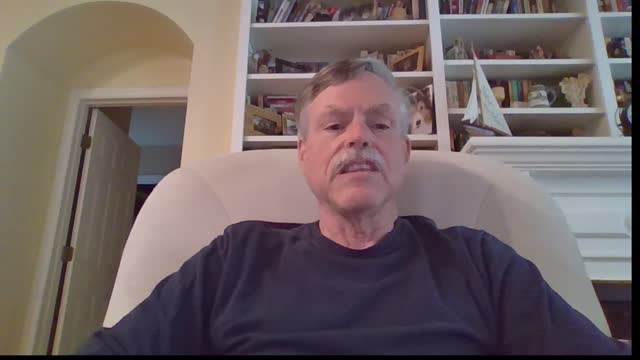
FTX CEO on What Happened
Locals = https://sweethomesa.locals.com/
POPULIST REVOLT = https://populistrevolt.com
Sam Bankman-Fried DMed me on Twitter. (the full Twitter exchange is in the link – WHO does an interview over Twitter?)
That was surprising. I’d spoken to Bankman-Fried via Zoom earlier in the summer when I was working on a profile of him, so I reached out to him via DM on November 13, after news broke that his cryptocurrency exchange had collapsed, with billions in customer deposits apparently gone. I didn’t expect him to respond — typically, people under investigation by both the Securities and Exchange Commission and the Department of Justice don’t return requests for comment.
Bankman-Fried, though, apparently wanted to talk. About how FTX and his hedge fund Alameda Research had gambled with customer money without, he claims, realizing that’s what they were doing. About who gets lauded as a hero and who’s the fall guy. About regulators. (“Fuck regulators.”) About what he regrets (“Chapter 11,” the decision to declare bankruptcy) and about what he would have done differently with FTX and Alameda (“more careful accounting + offboard Alameda from FTX once FTX could live on its own”).
It was past midnight Bahamas time, where Bankman-Fried is reportedly still located, and we went back and forth on Twitter for more than an hour. He was, he said, still working to try to raise the funding needed to pay back all his depositors.
As we messaged, I was trying to make sense of what, behind the PR and the charitable donations and the lobbying, Bankman-Fried actually believes about what’s right and what’s wrong — and especially the ethics of what he did and the industry he worked in. Looming over our whole conversation was the fact that people who trusted him have lost their savings, and that he’s done incalculable damage to everything he proclaimed only a few weeks ago to care about. The grief and pain he has caused is immense, and I came away from our conversation appalled by much of what he said. But if these mistakes haunted him, he largely didn’t show it.
(Disclosure: This August, Bankman-Fried’s philanthropic family foundation, Building a Stronger Future, awarded Vox’s Future Perfect a grant for a 2023 reporting project. That project is now on pause.)
Before his empire collapsed, Bankman-Fried was actively engaged in lobbying in Washington for a regulatory framework for cryptocurrency. While many crypto CEOs — like Bankman-Fried’s nemesis Binance CEO Changpeng “CZ” Zhao — are openly skeptical of government regulation, Bankman-Fried has largely avoided criticizing regulators. But in our conversation, he dismissed their role. He characterized his past conciliatory statements — like when he said just last month that some amount of crypto regulation would be “definitively good” — as little more than “PR.” In doing so, he all but confirmed the view of critics who have argued that his overtures to Washington were much more about image than substance.
One question on which I’ve seen widespread speculation is whether Bankman-Fried thought it was okay to do unethical things “for the greater good” — a position that hardcore utilitarians, which Bankman-Fried has identified as in the past, might hold.
That question happens to be one I had asked him in the interview this summer, which I had just relistened to the night before our Twitter conversation. At the time, of course, I thought the ethical dilemma where Bankman-Fried had perhaps crossed a line was whether it was acceptable to run a cryptocurrency exchange in the first place — and whether the good he claimed he meant to do made it okay.
A lot of people, I said to Bankman-Fried in that earlier interview, would think of “starting a crypto company to make billions of dollars the way I would think of starting a tobacco company to make billions of dollars: deeply immoral. Presumably, there’s some line where you shouldn’t do something that bad even for good reasons. I’m curious whether you think there’s some line? And if so, where would you draw that line?”
“There is some line,” he told me then. “The answer can’t be there is no line. Or else, you know, you could end up doing massively more damage than good. And I think more generally, you could say, okay, fine, but just, like, subtract that out. But I don’t think it’s that simple, either. Because there are a lot of complicated but important second-order harms that come if your core business is bad for the world, in terms of your ability to work with partners and your ability to work with partners in your philanthropic efforts.
“You could imagine that if the Philip Morris Foundation had really good ideas about how to improve the world, they probably would still have a really hard time working with the Gates Foundation. So I do think it’s more complicated than that.”
Truncated
-
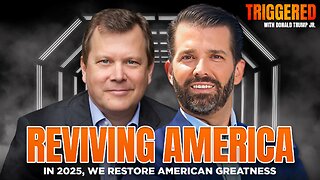 1:05:22
1:05:22
Donald Trump Jr.
12 hours agoAmerica First Means Reviving the American Dream, Interview with Peter Schweizer | TRIGGERED Ep.203
137K284 -
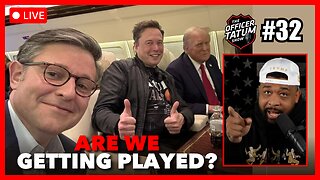 1:34:02
1:34:02
The Officer Tatum
12 hours agoLIVE: Trump ENDORSES Mike Johnson as Elon BACKTRACKS On H-1B + MORE | Officer Tatum Show EP 32
95.3K127 -
 45:56
45:56
Kimberly Guilfoyle
12 hours agoNew Year. Same MAGA Mission, Live with Roger Stone | Ep. 183
103K41 -
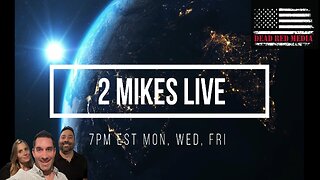 1:49:14
1:49:14
2 MIKES LIVE
16 hours ago2 MIKES LIVE #160 We're Back! Deep Dive Monday!
70.5K13 -
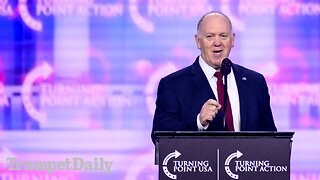 54:28
54:28
LFA TV
1 day agoTrump’s Triumphant Year | Trumpet Daily 12.30.24 7PM EST
69.8K11 -
 2:28:37
2:28:37
Quite Frankly
14 hours ago"2024 Review, Homunculus Flu, Old/New Year Predictions" 12/30/24
92.2K13 -
 14:04:17
14:04:17
RonjnJeremy
17 hours ago $9.05 earnedClassic Wow 20th Anniversary edition HC SF, Rogue..PT8 lvl 46+ Just need to stay alive...
113K6 -
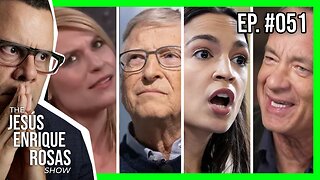 1:50:28
1:50:28
Jesús Enrique Rosas
13 hours agoEp. 51: Gates wants CENSORSHIP, Colbert MESSES UP, AOC meltdown, Hanks LEAVING and MOAR!
124K96 -
 1:45:47
1:45:47
The Quartering
16 hours agoHuge Censorship Law To Pass, Trump Endorses Johnson, TikTok is Saved? & Today's News!
147K84 -
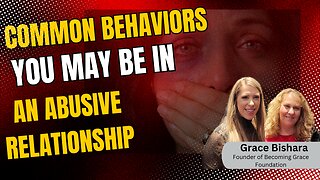 55:59
55:59
The Amber May Show
14 hours ago $1.63 earnedCommon Behaviors That May Indicate You Are In An Abusive Relationship| Grace Bishara
35.3K1